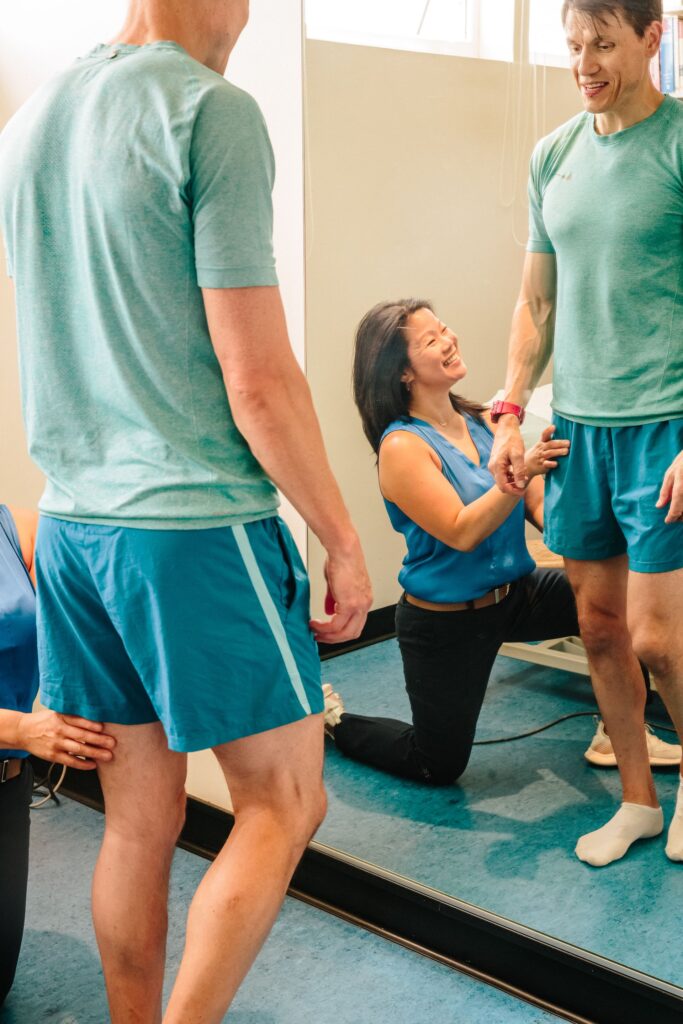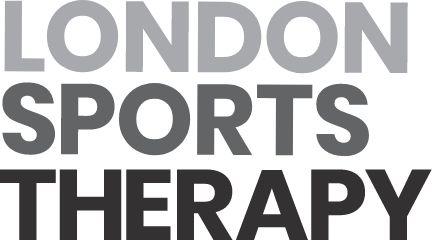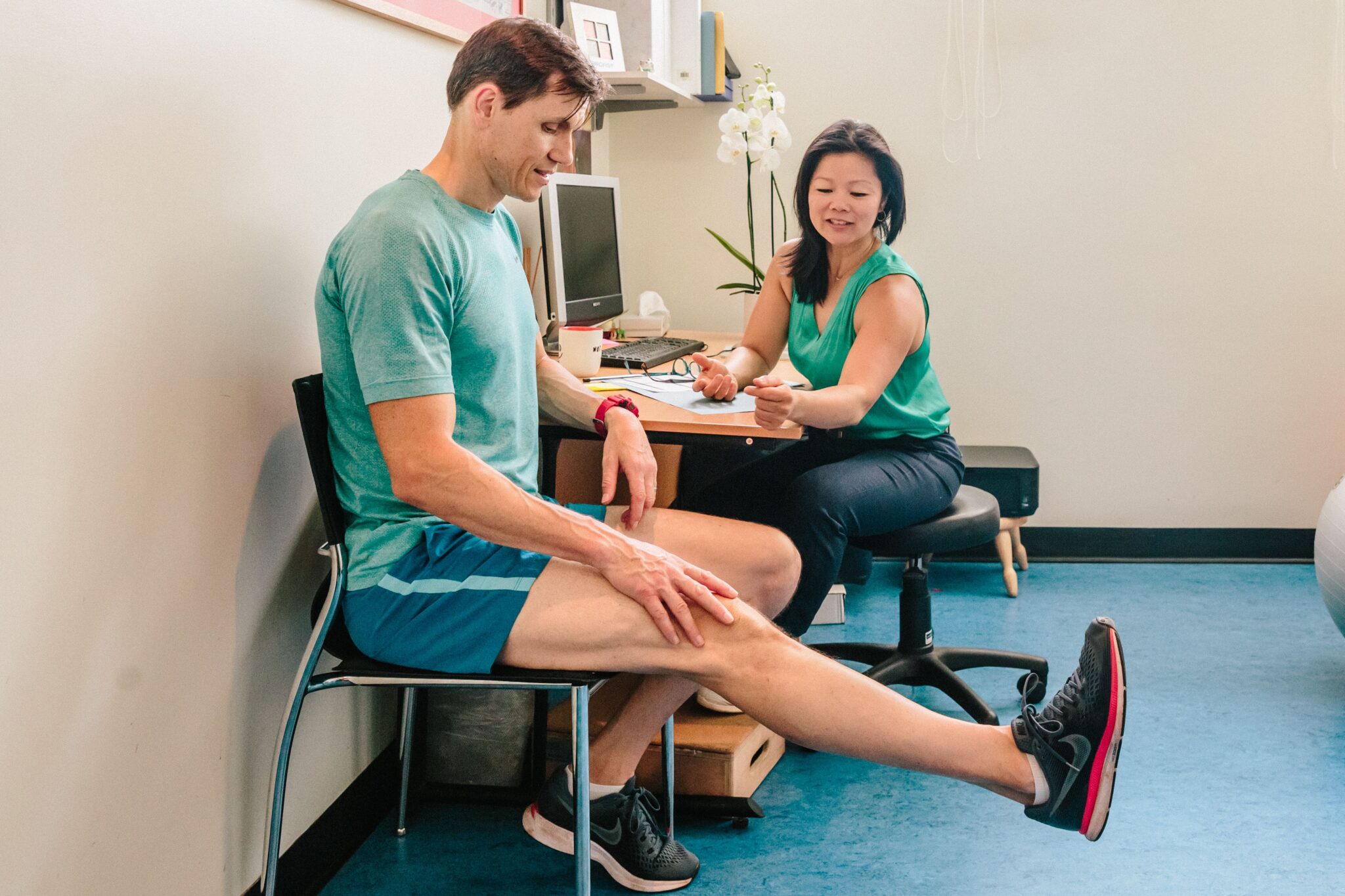Is having good bedside manners important? We think it is. And that’s why we treat all our patients with the empathy, respect, compassion, and understanding they deserve. By empathising with our patients, we are able to build trust with them. And when people trust us to make the best decisions for them and their care, they are more likely to share their stories and give us more details about their situation. But most importantly, they are also more likely to do their rehab exercises when they go home.
At our clinic, we pride ourselves on taking the time to build relationships with our patients. It’s a team effort and communication is key. We want people who put their trust in us to be confident that we care about the person – they are not just a number or another injury to us. We feel this is what sets us apart and here are some of the elements that are key to our approach.
The importance of listening
Over time, we’ve learnt how to truly listen. You may have heard the saying that humans were given one mouth but two ears for a reason. And we abide by that – we truly listen to what our patients are telling us. But we also know how and when to respectfully dig deeper, ask more questions, and investigate further.
We also understand the importance of being heard. In certain instances, where time and other external pressures or responsibilities come into play, people can feel they’re not being heard. So we want to provide the opposite – a safe place where people can share freely, with no judgement. Instead, we offer a positive and open attitude with the intention to help.
For example, part of allowing our patients to feel heard is acknowledging that a person’s response to pain is their own. The perception of pain is personal and can vary. And it can also be impacted by external factors, such as hypersensitivity caused by inflammation or stress. We never patronise people. So if someone’s reaction to touch or stimulation seems disproportionate to the amount of pressure applied, for example, we know how to ask different questions. We don’t necessarily stop at what people tell us. Instead, we think outside the box and will ask lifestyle-related questions where appropriate.
Using positive language
One of the key foundations that help us communicate with our patients in a way that builds trust is being mindful of the language we use. We prefer positive language to negative terms or phrases. We want to come across as reassuring, and for that, choice of words is extremely important. In fact, it’s been found that positive language has a psychological impact on rehabilitation. Because getting people over the initial hurdle when they first come and see us doesn’t fix the problem. We need them to do their exercises at home. And the way we talk and interact with them has a direct impact on whether they do or not.
Of course, we can’t take responsibility for people doing their exercises, but we can take responsibility for the person. This is why we strive to relate to our patients on a personal level. We completely take out negative or damaging language from our assessments. And we ensure we tell people what they need to hear in order to do the exercises when they leave the clinic.
As an example, we choose phrases such as, “your foot prefers to be to the left” rather than “you lean towards your left-hand side”. It’s a subtle difference, but it removes the blame from the person. This allows us to get buy-in from our patients. And, in turn, they feel they can open up more. And, most importantly, when the time comes to do the exercises we assign, they will do the work and start to see the progress they want.
Using positive body language
Another aspect we pay particular attention to is body language. We make an effort to come across as open and welcoming. When taking notes, for example, we try to still face the patient and make eye contact with them, at least partially.
While we need to record some notes at the start of a session, we make a conscious effort to show that we are interested in and welcome what our patients are telling us. We want them to keep talking, rather than seem too busy typing and with our eyes exclusively trained on the computer screen.
And if that means memorising some information and updating our records at the end of the session, that’s what we’ll do. Because if we give our back to people, and our body language is closed off, they’ll easily lose their train of thought, think we’re busy doing something else, and stop sharing. And that’s the opposite of what we want to achieve because we might fail to capture key information that’s relevant to the person’s recovery.
Being flexible and getting to know the person
We also pride ourselves on being flexible. That’s why we adapt and change our approach and methods to whatever our patients might need from us. We strive to always accommodate people as individuals. It’s never a one-size-fits-all solution – not with the treatment or the recommendations we make and not with the way we relate to our patients.
We also have a deep appreciation of people’s personal preferences and communication methods and will always do our best to accommodate them. Different preferences when it comes to communication also mean different cues when we try to explain an exercise, for example. If someone doesn’t respond well to a particular set of instructions, we’ll find a different way to express ourselves. It’s not the patient’s job to try and make sense of what we’re saying. It’s on us to ensure that our advice reaches people in a way that speaks to them.
This is why we strive to get to know the person and their individual circumstances or lifestyle. Because when it comes to compliance with doing exercises, these factors matter.

Offering support above all
When someone comes back to see us after a number of weeks, and they haven’t done their exercises, our first point of action is to try and understand why. And once we do, we can then change and adapt to help them succeed in the future. We never ‘tell people off’. On the contrary, we want them to know we’re invested in them and their success. We want them to get better! So we do our best to navigate around the personal situation and focus on what will work for a specific person in their current circumstances.
If someone is under an extreme amount of personal stress and struggling to cope with their situation, for example, we understand they might be ‘firefighting’. Perhaps they don’t have the mental bandwidth to focus on their recovery right now. They might have other more pressing matters in their lives. And that’s fine. So we do our best to explore the situation to find the best way to help going forward.
Using a holistic approach
We are a holistic clinic, which means we will always communicate with other professionals if and where necessary. For example, if a patient is working with a personal trainer or has been in the care of a consultant, doctor, or specialist, we’re more than happy to communicate with that professional. Of course, we only do that with the patient’s permission if this benefits their rehabilitation and recovery.
Because we are knowledgeable in other topics, we are also able to point our patients to other practices, or specialties either through referrals or by simply signposting specific resources. We don’t gain anything from it, other than an additional level of trust from our patients.
‘Filling the gap’ in someone’s care
The key for us is to provide reassurance to the patients, which is why we focus on the long-term investment in the person. And in doing that, we sometimes cover the gap that other professionals can’t fill. Often after a surgery or treatment for a specific injury or ailment, for example, the patient no longer has the support of a specialist or consultant. Once they have been discharged from specialist care, they no longer have that professional support. And yet, often their recovery is far from over. They certainly still have doubts and questions and may lack the information they need. But we can be the ones to fill that gap and provide the care that doesn’t fall under the remit of other providers.
An example of this are patients who are preparing for hip or knee replacement surgery. As we know in advance that their mobility will be heavily restricted for at least two weeks after surgery, we encourage people to make arrangements. We ask them to think about having someone who can help, like a partner, a relative, or a carer, if possible. Post-op care is a hugely important part of their recovery.
Training and mentoring
While empathy comes with personality (to an extent) it also comes with maturity and experience. Once you have experienced a range of situations and emotions in life, you are better equipped to relate to other people’s problems. You understand what they’re going through and what they might need. And as result, you’re able to better understand how you should speak to them or what you might need to give them in order to help.
To ensure that everyone at the clinic operates under the same standards, we invest in training, regular meetings, and troubleshooting. We go over each other’s notes, ask each other questions, and challenge each other’s assumptions or solutions. It’s not just about having high-standard technical and rehabilitation skills. It’s also about knowing how to focus on the psychosocial impact on the patient. In other words, it’s all about bedside manners. That’s why we ask questions and have that curiosity, empathy, understanding, and problem-solving attitude.
Would you like our help?
We offer holistic and functional assessment, adjustments and treatments, and advice on rehabilitation, strengthening, and conditioning. If you experience pain when walking, running, practising any type of sport, or simply going about your daily life, feel free to get in touch to find out how we can help you.

